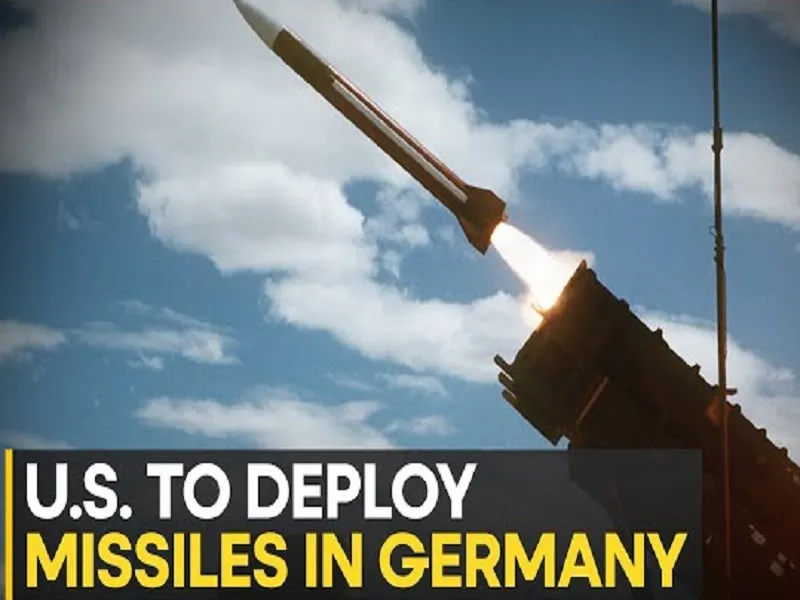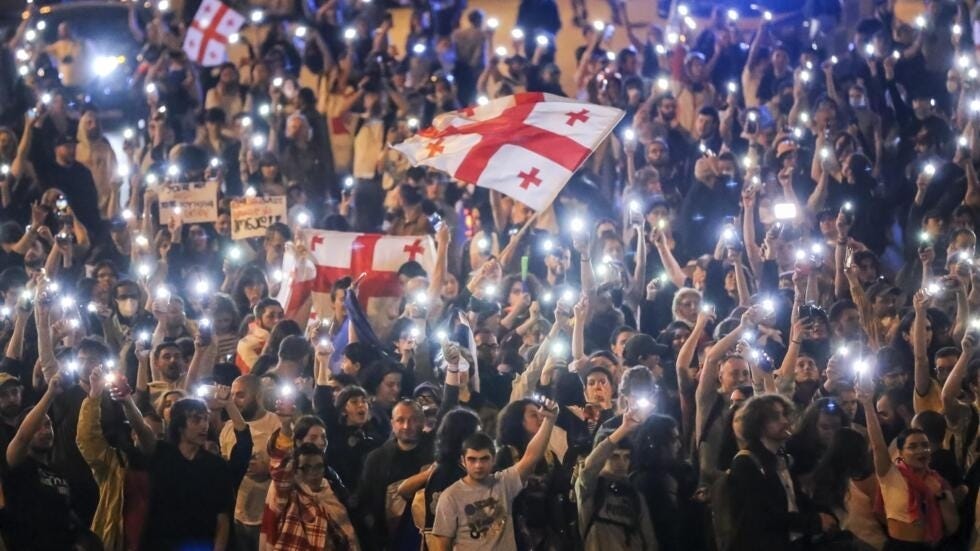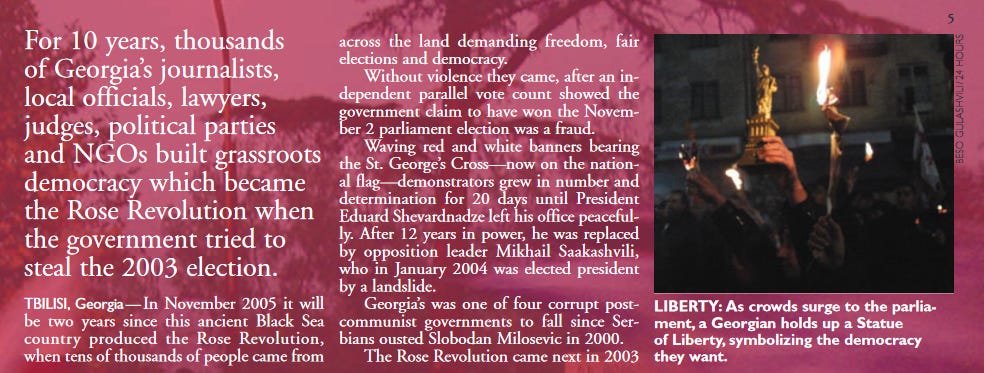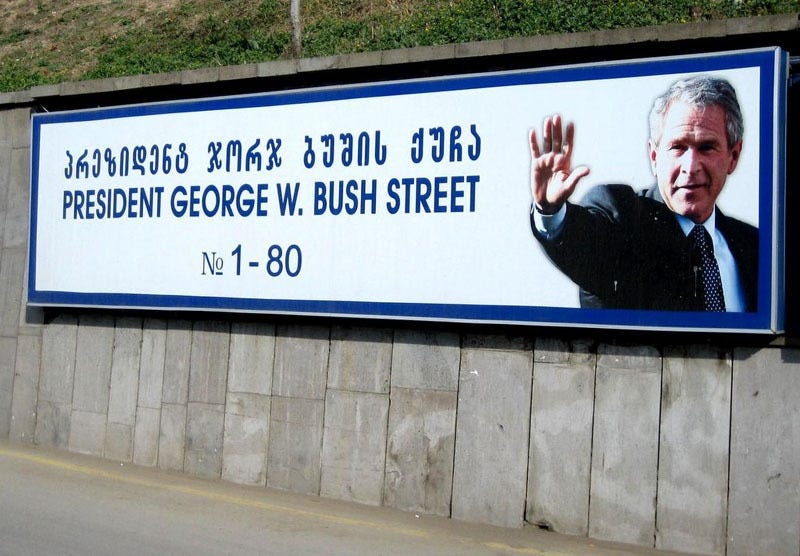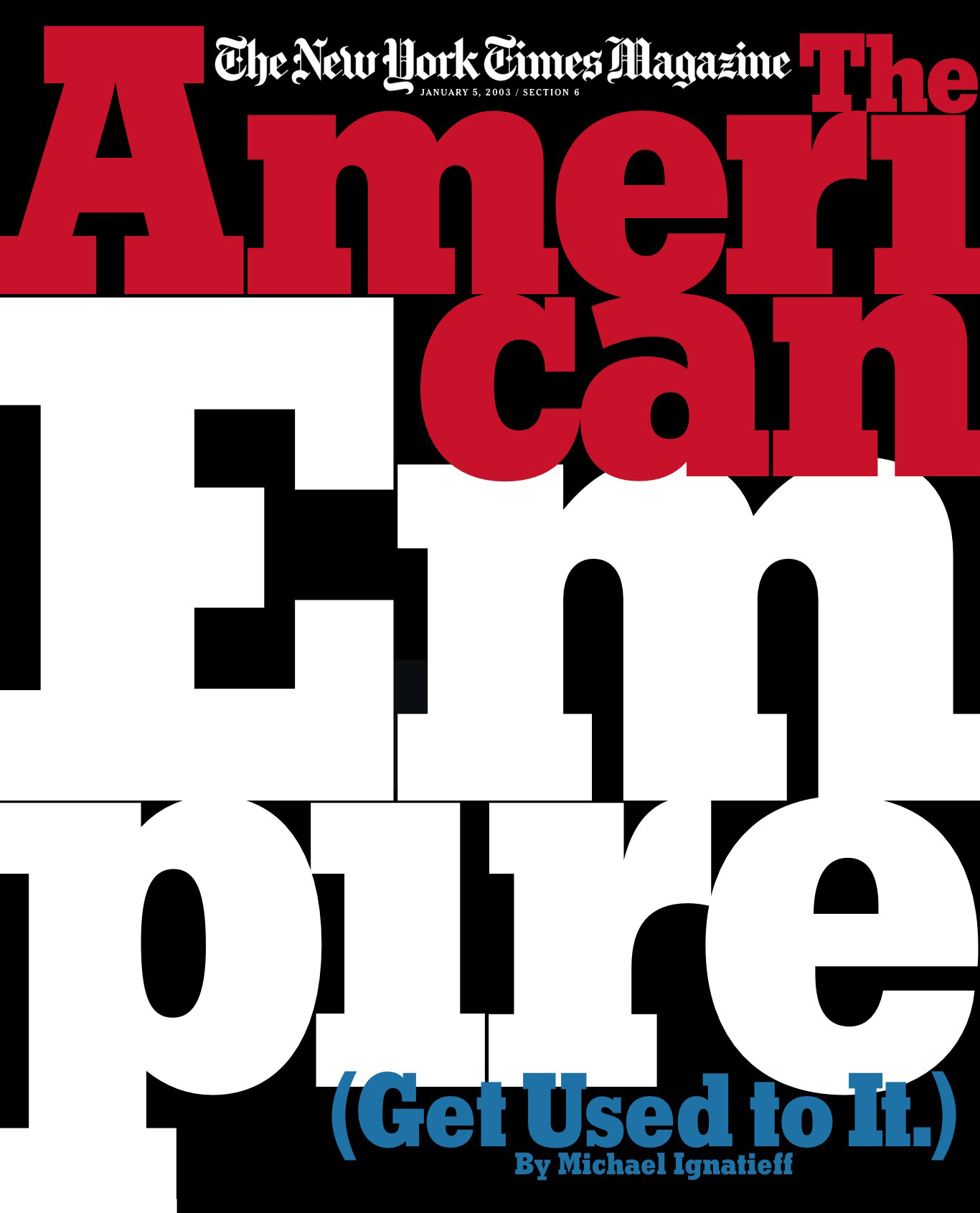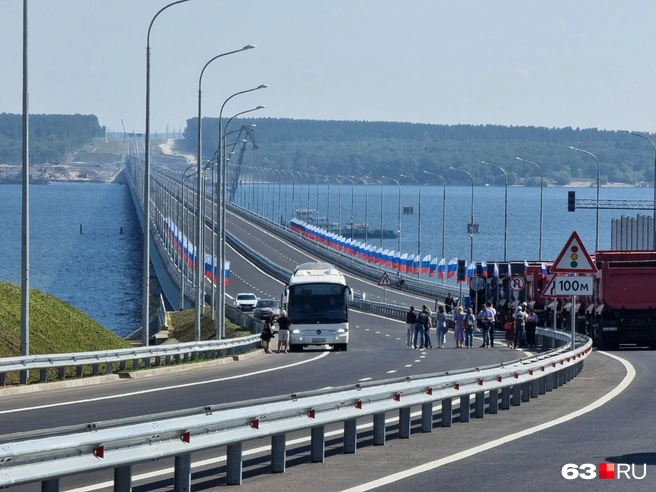Readers of these essays and viewers of my recent interviews on the internet will be aware that, under circumstances of reduced travel to Russia, I rely heavily on the leading Russian political talk shows to get insights into the thoughts and concerns of Russia’s chattering classes, including some Kremlin insiders.
The show that I have used most extensively and have cited most frequently in my writings and interviews is Evening with Vladimir Solovyov. The presenter is highly regarded within his profession, and has been the elected president of the Moscow Journalists’ Club. He has conducted exclusive lengthy interviews with Vladimir Putin, though he invites guests who often are highly critical of government policies, especially with regard to the Central Bank’s high interest rates and failure to bankroll industry sufficiently.
Until his death from Covid a couple of years ago, the arch nationalist politician Vladimir Zhirinovsky, founder and head of the Liberal Democratic party, was a frequent guest on the show and was allowed to take aim at the country’s foreign policy for being too polite and insufficiently muscular. Chairmen of committees in the State Duma from various parties including the Communists are regular visitors to the show today, as are a short list of academics, retired military officers who provide expert analysis of the war situation and other valuable informants on political life.
As I have said elsewhere, living outside Russia as I do, the Solovyov show is attractive because it is broadcast ‘live’ six nights a week on the widely accessible smotrim.ru internet platform. I put ‘live’ in quotation marks because all such shows with national distribution are necessarily taped, usually in mid-afternoon Moscow time, and shown locally at prime-time hours all across Russia’s nine time zones. I receive it in Brussels at about 11pm. However, it must be explicitly said that there are no cuts, no editing of the taped shows, unlike post-production practices at CNN and other Western news providers. If you say something objectionable to the producers, you won’t be invited back, but what you said will be heard across the country. I know this for a fact, because I appeared on the Solovyov show back in 2016 and saw how it works from the inside, starting with the coffee and sandwiches shared with other panelists before show time, when the host will drop in for an informal chat, till the end of taping, when the panelists disappear into the Moscow metro to go home.
But the Solovyov show has its drawbacks. Far too much time is taken up with empty philosophical musings about the West’s civilizational decline or Russia’s place in the world. Then there is the host’s arrogance and tendency to dominate the conversation. He interrupts panelists incessantly, and picks fights with some, whom he then unceremoniously dismisses from his guest lists.
Allow me to explain that this objectionable side of the Solovyov show was not invented by the presenter. Russian talk shows became popular with television audiences decades ago for their entertainment value as much as or more than for their information value. They were considered a blood sport, in which the panelists vied to get and keep the live microphone, shouting one another down. For this purpose, the program managers typically invited to each show one or more ‘enemies’ on whom the presenter and other panelists could vent their sense of outrage. To be sure, the enemies were allowed to accurately and fairly present the thinking of the other side, antagonistic to the Kremlin narratives. Russian talk show producers were confident that the audience could orient itself without being led by the hand. The enemies were demolished by true patriots on air, presumably taking comfort in the generous payments they were being given for their time and trouble. These shows were to Oxford Union debates as the 1960s televised American wrestling matches starring characters with outlandish names like ‘Haystack Calhoun’ and with overweight physiques matching their names were to Olympics wrestling.
Back in 2016, when I made my debut on all nationally broadcast talk shows and saw their mechanics from inside, the villain invited to liven the talks shows was the American journalist Michael Bohm. Before he became a star on Russian television, Bohm had spent some years living and working in the Russian capital as an editor at The Moscow Times. He positioned himself on air as the voice of the CIA on any given issue under discussion. He won the reluctant affection of the Russian audience because he had an excellent command of the Russian language and a rich store of Russian folk wisdom which he produced extemporaneously to spice up his talks. For some time, Bohm spent his weekdays traveling from one talk show to another. It was rumored that he made a very handsome income, whereas the Russian panelists who sat next to him got sandwiches and a handshake.
With the start of the Special Military Operation in 2022, the role of villain on the talk shows was assumed by Ukrainian politicians and political scientists who defended the Kiev narrative. Now that the war has become deadly serious, the Russian tolerance of Ukrainian buffoons has also dried up. The talk shows have dispensed with that kind of light entertainment and only present normal Russian experts and statesmen to take part today. For these reasons, Solovyov himself has to pick fights if he wants the temperature to rise during his show.
In passing, I have mentioned in my writings that from time to time I consult the other premier talk show presented on prime time in Russia, Большая игра, which translates as The Great Game, making reference to the 19th century rivalry between the Russian and British empires for influence in Central Asia. It is aired in three segments. The key presenter is Vyacheslav Nikonov, member of the State Duma, long time director of Russia’s agency to support culture abroad among the Russian diaspora, and thanks to his family tree as grandson of the Bolshevik leader Molotov, a hereditary member of the Kremlin elite. The other main presenter who holds forth in a different segment is Dmitry Simes, former adviser and travel companion of Richard Nixon in his final years, director of the Nixon Center think tank in Washington following Nixon’s death, later renamed the Center for the National Interest. For several years, Simes worked with Nikonov in Moscow as the show’s anchor in Washington in what were ‘tele-bridge’ broadcasts. However, as the political atmosphere in the States became acrimonious and openly anti-Russian, Simes pulled up his tent at the outset of the SMO and moved back to Moscow, from where he operates today.
Both Nikonov and Simes have a high regard for decorum and run a very dignified program that gives all due respect to panelists. They also maintain a high intellectual level of discussion of the day’s main political and international events that is well researched by the production team. It is available online the morning after live broadcast on a web platform whose name illustrates the Russian sense of humor even in these bleak times: rutube. You can find the first segment of yesterday’s show here:
https://rutube.ru/video/f15066055e18ef2 ... 287198406/
In the weeks and months to come, I expect to rely more heavily on The Great Game for my insights into Russian political thinking of the day.
Finally, I call attention to two other talk shows worthy of note that I have experienced personally as a panelist back in my glory days of 2016. They were glory days because of the presidential electoral campaign in America and the keen interest of Russian audiences and show producers to put on air American political scientists living in or frequently visiting Moscow who could make some sense of Donald Trump’s campaign, which I tried to do.
The first of these is Время покажет, which translates as ‘Time will tell.’ Now, just as back in 2016, the show has several moderators, of whom the main one was and is Artyom Sheinin. Like The Great Game, it can be watched on rutube. Yesterday’s program can be viewed here:
https://rutube.ru/video/21b76c838c9d472 ... d113125ab/
It opens with a retrospective look at the prehistory to today’s major conflict over Ukraine’s joining NATO. Sheinin puts up on screen an excerpt from the transcript of talks between Al Gore and Boris Yeltsin in 1994 on NATO expansion and an extract from the talks between Bill Clinton and Yeltsin on the same subject in 1997. He discusses the internationalization of NATO as a major aspect of the meetings in Washington that is reflected in the Communique, particularly the first-time identification of China as a major support to Russia’s war economy. Sheinin and his political scientist guests discuss the step by step escalation of the war that is anticipated when Blinken’s announcement that F16s will be flying in Ukrainian air space later this summer comes to pass. The issue is how Russia should respond to the provocation.
Finally, I wish to mention the Sixty Minutes program that goes out live on smotrim.ru in mornings and late afternoons. Brussels time. It is co-hosted by Duma member Yevgeny Popov and his wife Olga Skabeyeva. They show and comment upon a lot of video footage from Western mainstream broadcasters. Much of this is high value content, though, regrettably, they fill the entertainment niche with too much trivia reporting on LGBTQ excesses in the West or on the foibles of Biden in his senility.
Skabeyeva may be abrasive, but Popov is a gentleman with a drole sense of humor. Before becoming a presenter in Moscow, he had been the New York bureau chief of Russian state television. I have a kindly memory of him, since in 2016 he was the one who brought me to the Moscow talk show circuit following a fortuitous meeting we had in Brussels. We were both present in an auditorium of the European Parliament building to attend the screening of a film expose of William Browder, campaigner for the first anti-Russian sanctions promulgated as the Magnitsky Act. When the bosses in the Parliament cancelled the screening at the very last moment following protests by an outraged Browder, Popov invited me to join his show, then called Special Correspondent on my next visit to Russia.
Popov and Skabeyeva invite onto their show many of the same military experts and political scientists who appear on the Solovyov show. However, they do not have the same drawing power as Solovyov to attract powerful Russian legislators.
For those of you interested in reading the NATO communique or declaration issued at the closing of the Summit in Brussels that was being dissected on the Time Will Tell show, here is the link: https://www.nato.int/cps/en/natohq/offi ... 227678.htm
©Gilbert Doctorow, 2024
https://gilbertdoctorow.com/2024/07/12/ ... ows-today/
******
Russia Is Serious About Resolving The Issue Of Deceptive Indian Recruitment Into Its Army
ANDREW KORYBKO
JUL 12, 2024
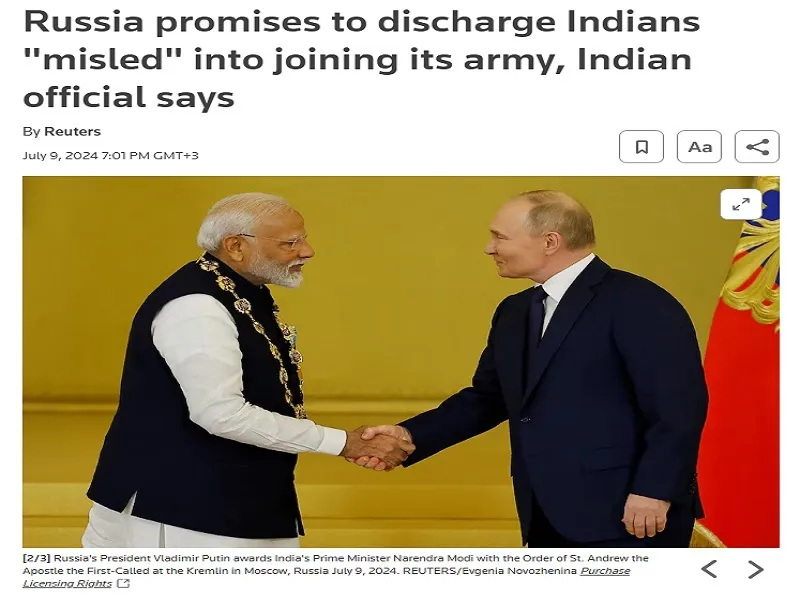
India played it cool and didn’t overreact, for which it deserves a lot of credit, while Russia agreed to discharge its partner’s nationals from service even before the investigation concludes.
Indian media reported that Prime Minister Narendra Modi discussed the issue of Indians being duped by human trafficking gangs into joining the Russian Army during his informal talks with President Putin on Monday. The Russian leader allegedly promised his counterpart to discharge the several dozen Indian nationals who are reportedly operating as support staff after a few of them were killed earlier this year. Russian Charge d’Affaires in Delhi Roman Babushkin had more to say about this. In his words:
“We do not want them, and we are investigating the agents who recruited and deceived them. Agents from Russia are also under investigation. All Indian nationals in Russia are there on visitor or business visas, and we have no mechanism for recruiting Indian or other foreign nationals into our army.”
While it’s premature to know exactly how this scandal unfolded in the first place, it wouldn’t be surprising if the same speculative network that was behind the earlier controversial recruitment of Cubans and Nepalis is behind this one too. The preceding hyperlinked analyses from last year posited that remnants of now-defunct Wagner might be involved in a scheme where they collude with human traffickers and corrupt recruiters to dupe Indians into joining the army in exchange for kickbacks.
A wide-ranging anti-corruption investigation has already rocked some of the most senior levels of the Russian Defense Ministry in recent months so it should be assumed that it’ll eventually narrow in on whoever is committing these crimes as well. After all, this issue is highly problematic since Russia and India are special and privileged strategic partners, and it’s contrary to the spirit of their decades-long friendship for anyone in Russia to dupe Indians into risking – and in some cases losing – their lives.
It's therefore imperative to let the investigation run its course and justice be served by bringing the full weight of the law down upon those who could have caused major trouble in Russian-Indian relations. India trusted Russia enough though to know that something was very wrong and that this wasn’t part of its policy. It therefore refused to jump on the Russia-bashing bandwagon by spewing conspiracy theories about Russia allegedly being so low on troops that it was desperately duping Indians to join its army.
That could have led to praise in the Western media, where India is nowadays treated unfairly on the pretext of its alleged involvement in overseas assassinations, but that’s really just a cover for punishing it for refusing to dump Russia. Doing so would have ruined their ties though and risked pushing Russia further into China’s arms, after which India would feel pressured to embrace the US at the expense of its hard-earned strategic autonomy, thus heralding a Sino-US world order instead of a truly multipolar one.
The takeaway from this sensitive issue is that it failed to weaken the trust that was forged between them over the decades. India played it cool and didn’t overreact, for which it deserves a lot of credit, while Russia agreed to discharge its partner’s nationals from service even before the investigation concludes. Going forward, these two strategic partners will work more closely in combating human trafficking networks, which will further strengthen their trust unlike what their ill-wishers hoped would happen.
https://korybko.substack.com/p/russia-i ... -resolving
******
We defeated foreign agents, we will defeat liberal fascism
July 11, 21:00
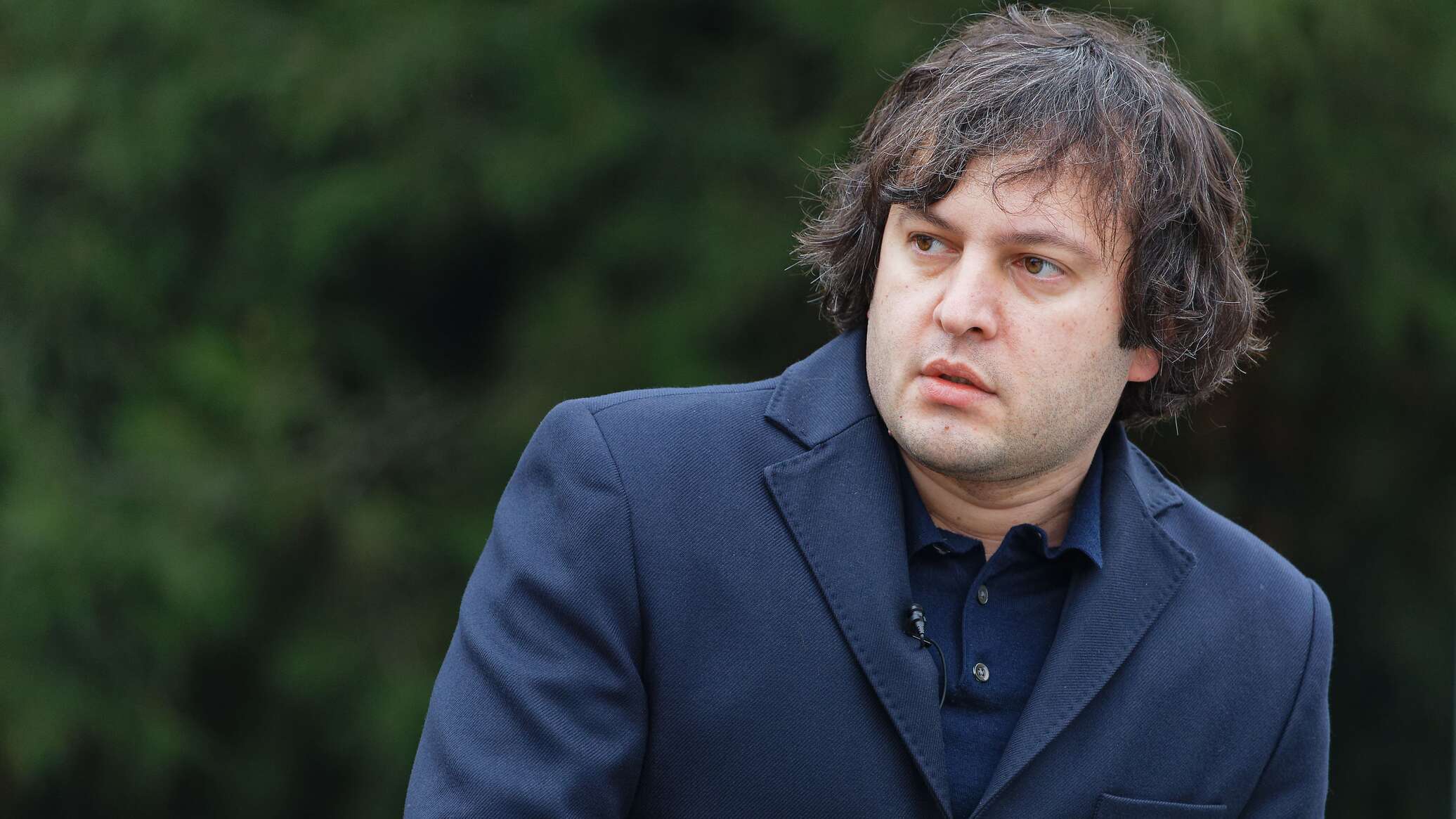
The Georgian Prime Minister promised to defeat liberal fascism in 2025
"This liberal fascism is purposefully and coordinatedly financed from foreign sources, by donor organizations, which is a crime against Georgian society. I am confident that our politics, our society and the state will be free from liberal fascism, for which we will do everything (c) Georgian Prime Minister Irakli Kobakhidze
The struggle is being waged so successfully that the topic of Georgia's accession to NATO has actually disappeared from the documents of the last NATO summit. Liberal fascists are striking back at proud Georgians. The riot in Tbilisi continues.
https://colonelcassad.livejournal.com/9260068.html
Google Translator
*****
Another poll in Armenia: the effectiveness of propaganda and loss of reference points
July 12, 2024
Rybar
In Armenia, the results of the July public opinion survey by the Gallup Center were published . Citizens were asked about their attitude to the amendment of the Constitution, border demarcation, the fate of Artsakh, the CSTO, NATO and the EU.
Constitution
The overwhelming majority of respondents (80.3%) opposed the constitutional amendments that Baku insists on. Only 11.7% believe that some provisions need to be changed, while 3.3% were in favor of a complete overhaul of the Constitution.
According to the director of the Armenian branch of Gallup, Aram Navasardyan, before the aggressive statements from the Azerbaijani side demanding changes to the Constitution, the attitude of Armenian society was somewhat different.
In January, only 38.1% of respondents believed that the basic law should remain the same, while 34.2% agreed with the amendments.
Artsakh and refugees
33.3% of respondents believe that Armenia should create conditions for the return of Artsakh residents home, and 21.5% are confident that Artsakh should be returned.
10.2% believe that it is necessary to come to terms with the loss of Artsakh in order to avoid problems.
Delimitation and demarcation of the border with Azerbaijan
The majority of respondents ( 56.9% ) are dissatisfied with the process of establishing the border with Azerbaijan. Only 16.7% of respondents said that they approve of the demarcation being carried out.
Military blocs
44.3% of respondents believe that Armenia should be neutral and not be a member of either the CSTO or NATO.
At the same time, 16.9% believe that it is necessary to remain in the CSTO , and 29% are in favor of joining NATO.
As Navasardyan notes, compared to the survey data in February, the number of supporters of CSTO membership decreased by 10%, while supporters of NATO increased by 7%.
European integration and the EAEU
34.2% believed that Armenia should definitely strive for EU membership , 22.5% - rather yes, 13.7% - rather no, 19.1% - definitely no.
At the same time, 28.8% of respondents believe that Armenia should definitely strive to join the EU even at the cost of leaving the EAEU .
Attitude to political forces
According to a Gallup poll , next Sunday 14.4% of respondents would vote for the ruling Civil Contract party , 3.7% for the Armenia bloc, 3.5% for the DOK party, 2.3% for the I Have the Honor bloc, and 1.5% for the leader of the Tavush for the Motherland movement Bagrat Galstanyan.
At the same time, 8.6% of respondents would not give their votes to anyone, and more than 40% would not come to the polling stations.
The latest sociology shows that, through the efforts of state propaganda, Armenian society continues to lose its cause-and-effect bearings .
Thus, Armenians continue to react sharply to the demands of Azerbaijanis, which is why their opinion on changing the Constitution has changed sharply in a negative direction.
The same applies to the delimitation of the border, which in fact is a unilateral concession to the Azerbaijanis of key border areas. The issue of Artsakh and refugees also remains painful for society.
However, the main sponsors and curators of the current government and such policies continue to gain popularity in Armenia.
The populist rhetoric about imaginary accession to the EU worked, and the opinion about leaving the EAEU is gaining popularity , despite the fact that membership in the organization has ensured Armenia’s current economic growth .
NATO's attractiveness is also explained by the propaganda campaigns of the alliance members, who give handouts to the Armenians in the form of outdated equipment, while the US conducts demonstrative military exercises.
However, as we constantly write , Western curators, primarily the Americans, demand both a change in the Constitution and a speedy peace on Baku’s terms, along with the fulfillment of all demands for humiliating demarcation and delimitation.
https://rybar.ru/ocherednoj-soczopros-v ... rientirov/
Google Translator







